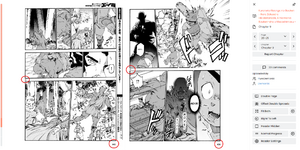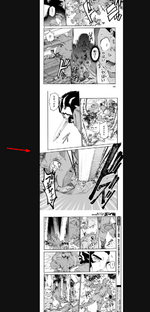Thanks for the feedback. I'm going to change some of the things you mentioned.
Page 4: I agree, it sounds weird... it should probably be more like "Hmm... All right, fine".
Regarding the attribute/magic:
The word is "空" or "sora" and it means "Sky".
If the author wanted the attribute to be "Empty" he should had said "空っぽ" or "Karappo", which is "Empty"
The priest in the first chapter calls his attribute for "空"/"sora" and therefor "Sky" Attribute, but i can understand that it does not roll as good off the tongue as "Empty"
Other people will still call it "Empty", because they can't see it but Nyango who can will call it "Sky".
In that case, the original TL is actually correct. While [空] can be pronounced "Sora" and mean "sky", it only means such in the sense that the sky is a great void, a vast space that is filled with "empty air" (as the concept was created before the scientific understanding that air is not actually void of anything but made up of various gas molecules), and still carries that meaning today, in Japanese
and the original Chinese it is borrowed from, and is pronounced as [から] "Shunya". The meaning is actually derived from Buddhism, specifically the sanskrit [शून्यता] "sunyata", which is how it originally came to China, as well. If you are familiar with the concept of "Zen", and the Mahayana Buddhist belief that, "all things are empty of intrinsic existence and nature", then you'd be familiar with what I'm referring to here. Basically, "emptiness" is considered to be "the ultimate reality", or perfection of state. It is the "emptiness" inside of a cup, bounded by the cup that gives nothing its form, like how his will and conceptualization are what give his magic its form.


